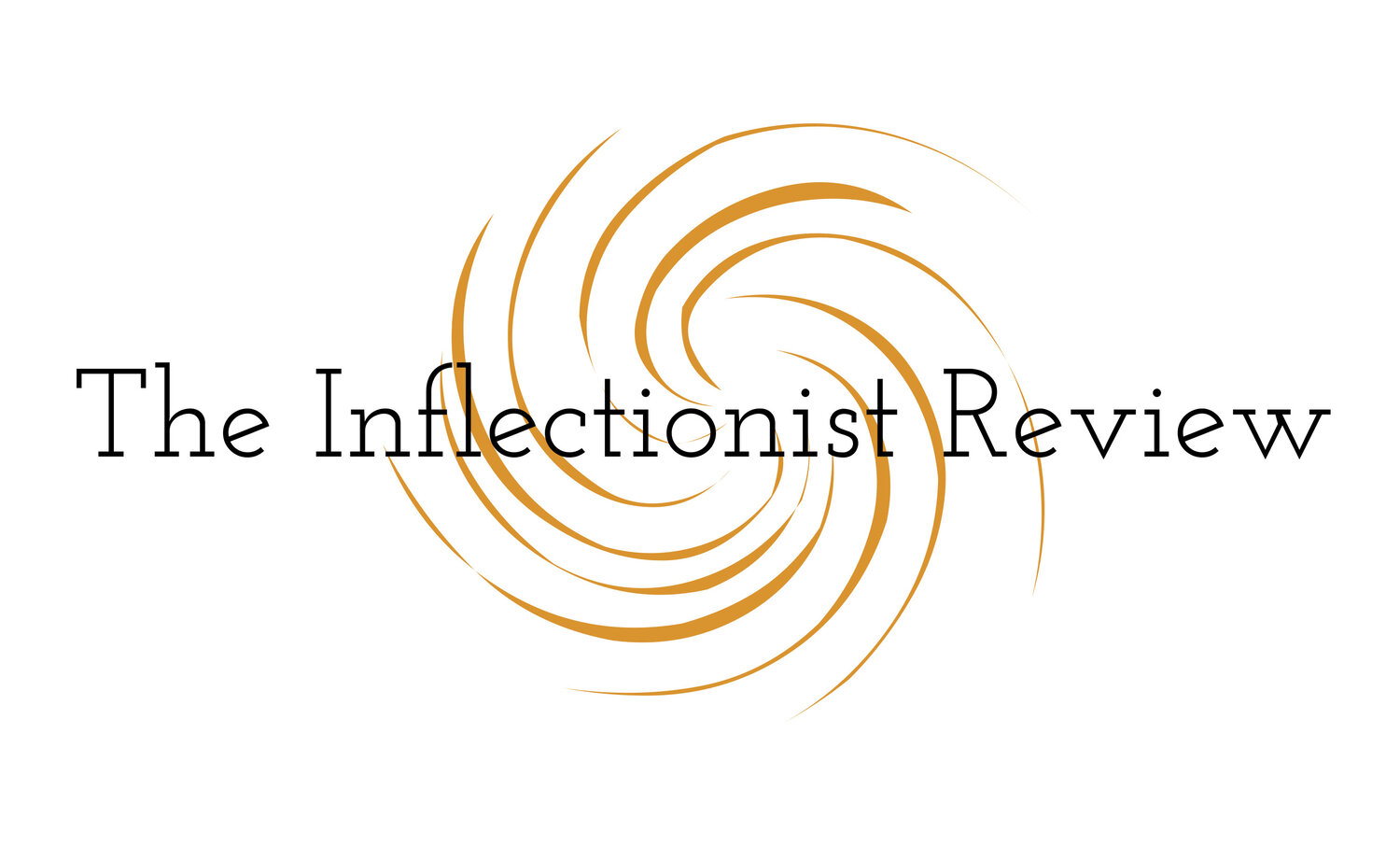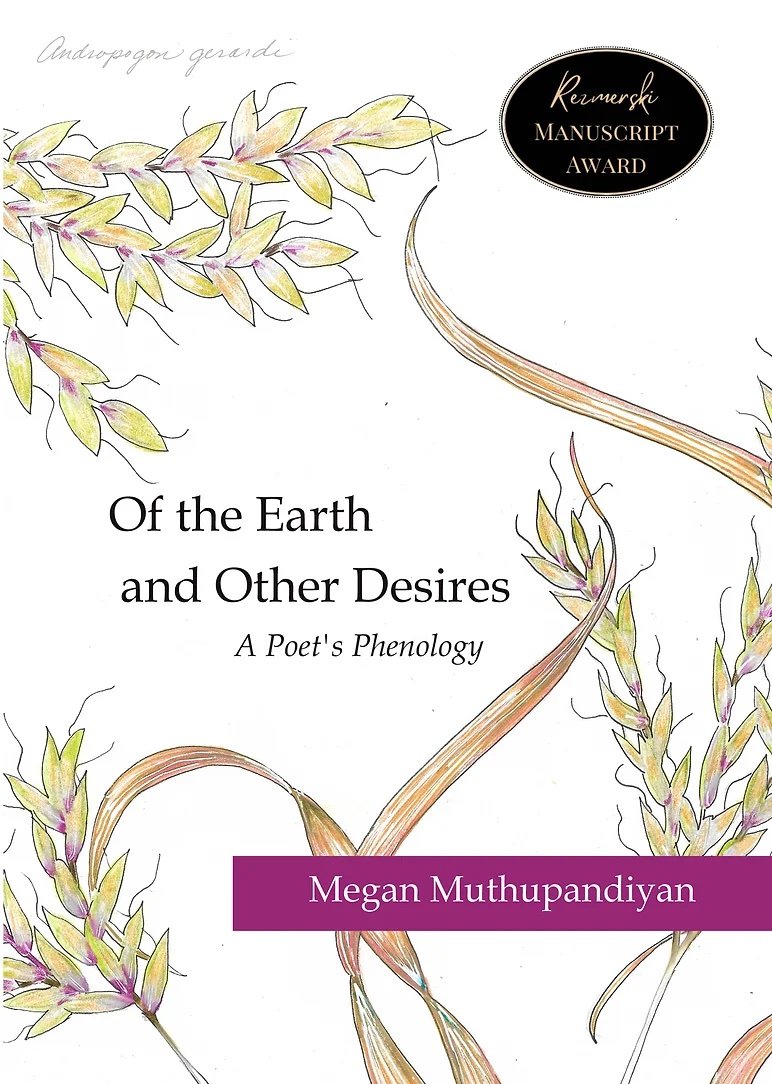Gail Goepfert reviews
Of the Earth and Other Desires
by Megan Muthupandiyan
Of the Earth and Other Desires
by Megan Muthupandiyan
League of Minnesota Poets Press
February 2024
Paperback, 54 pages
ISBN: 978-1960944047
$11.95
It’s a love song—Megan Muthupandiyan’s second book Of the Earth and Other Desires, A Poet’s Phenology. Love of walking the earth, love of others, love of earthly things—house sparrows and bumblebees, leopard frogs and white-tailed deer, sugar maples and quaking aspen. Each poem appears alongside the GPS coordinates and binomial nomenclature that are applicable to the living things featured there. For instance, the poem “Apotheosis” with the tag“Poecile atricapillus” (black-capped chickadee) has the GPS coordinates 43° 2'59.3"N 88° 4'52.2" W which lead to this address—Village Park, 13600 Juneau Blvd, Elm Grove, WI 53122, United States. It’s a scientific CliffsNotes of sorts allowing us to be more present, more engaged, more curious.
The extraordinary attention to language in Muthupandiyan’s poems is often what makes me want to reread. In “By January,” she writes:
The maple buds began to scaffold
in late fall
they season the blush bower of winter
within rich anise-star constellations—
like giant armadillos
they curl around one another,
sheltering their soft underbellies
from the cold,
from the light.
Her eye for all things nature brings about this surprising juxtaposition between maple buds and armadillos. The unanticipated is endless. In “The Lungta,” there is “a hurrah of horses” and “all spring the tulips / trapezed along a string.” In “The Feast of St. Mark,” the visual impact of her words lightens and lifts us off the page.
The sandhill cranes rise,
circling like ash
from the bonfires of winter
as the farmers
plait dried compost with the soil
in long, lean braids.
And then there is the all of “Composition.”
Silver white birch
score the sepia light
as three wintering bats rise—
soft notes
on the tongue of darkness
a chord inscribed
and left undone.
The poems are an amalgamation of music, canvas, and movement. Just savor those words on your tongue.
Throughout, we travel with the poet as she unearths geographies for us, but homo sapiens are not neglected. In fact, there’s a hunger for relationship, a connection that unfurls naturally as part of her earth-footing. At times, the poet is distracted by human desire, as in “Stella Maris” when she writes, “There are things I have wanted / more than to be your lover / but I can’t remember them now—” In the “Feast of St. Mark,” she watches cranes rise in a field “with the silent adoration / I have received now and again / from quiet men.” All living things are woven together. And then:
I am drowning in the
sensation
of silently loving,
not once wondering
if this sentiment is enough.
In each moment witnessed—the stuff of beauty; the poet pushes us to gather with our own eyes.
One of my favorite pieces in this collection dedicated to her daughter is “Formello.” “Such is the language of love” she writes as she views a farmer surveying the fields of his labor. Such interconnectedness between human and place.
No matter where, with you
I stare out on this landscape;
it magnifies
the beauty of a child
without whom
beauty would have ever only been a word—
without whom this field
would have ever only been a field.
In a late poem in the book, “I Have Met You in Thin Places” the writer extends a hand to the “you” which becomes the poet’s invitation to all, a beckoning to a call and response— “Come take it, even now I am here.” Take the hand, embrace the earth, breathe in the incense of desire.
Gail Goepfert, associate editor at RHINO, published one chapbook—and three books, the most recent Self-Portrait with Thorns (2022). She collaborated with Patrice Boyer Claeys on a chapbook, This Hard Business of Living, and two books, Honey from the Sun and Earth Cafeteria, celebrations of fruits and vegetables with Claeys’s centos and Goepfert’s photography.
As the founding director of Poetry in the Parks (poetryintheparks.org), much of Megan Muthupandiyan’s work celebrates how individuals' participation in their land communities fosters their ecological consciousness. Of the Earth and Other Desires was awarded the John Rezmerski Manuscript Prize in 2023. Please connect with her at meganmuthupandiyan.com.

